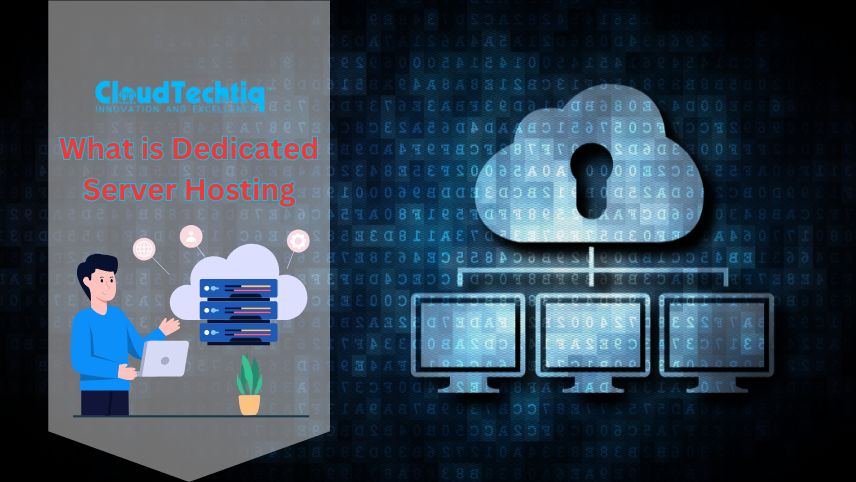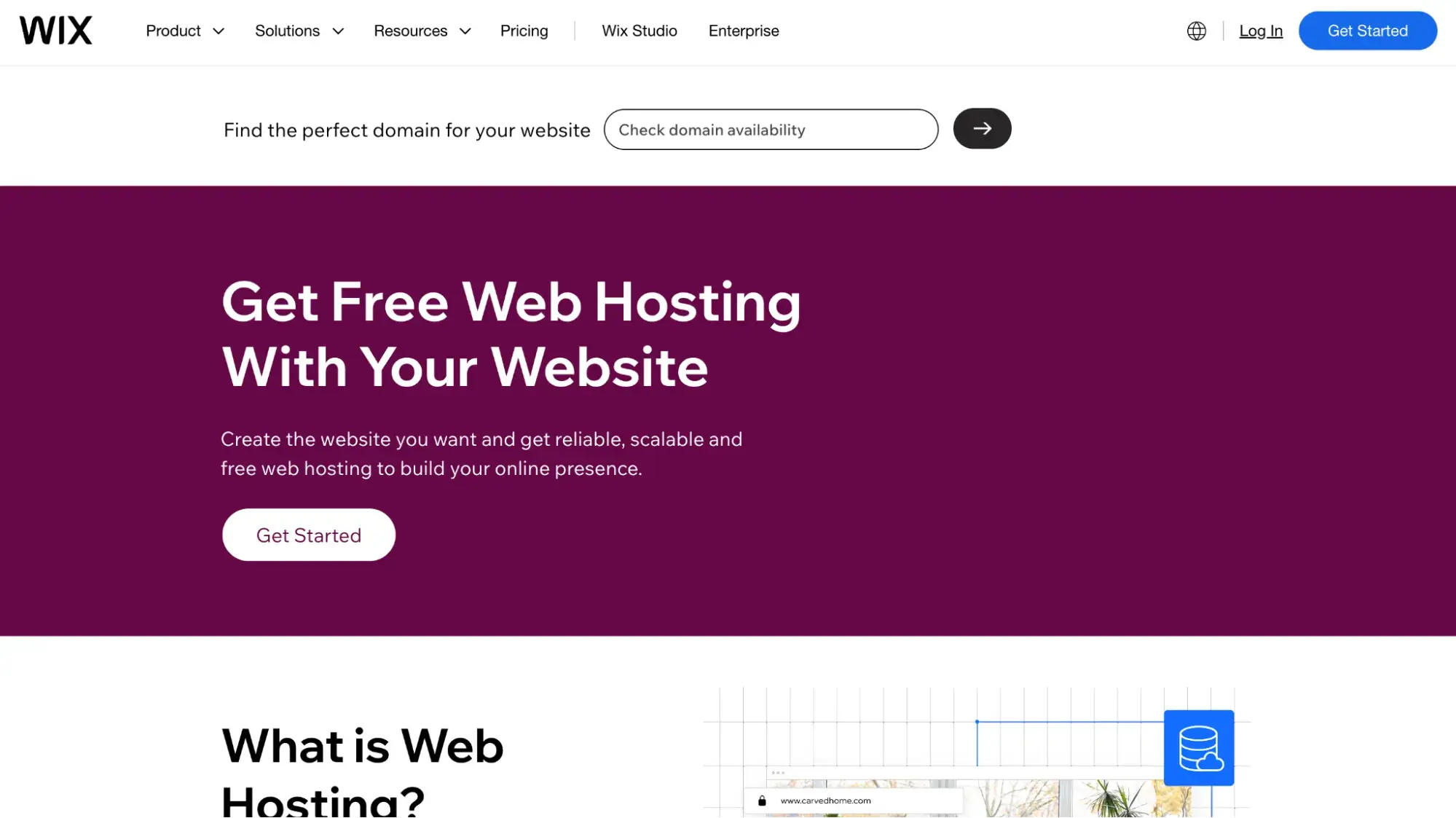
Why Dedicated Hosting is the Ultimate Solution for Your Website Needs
Dedicated hosting is a powerful solution that offers unparalleled performance and control for your website. Whether you are managing a high-traffic blog, a complex e-commerce site, or any online application requiring substantial resources, dedicated hosting empowers you with exclusive use of an entire server. This article will explore various aspects of dedicated hosting—its benefits, types, comparison with other hosting options, and much more—to help ensure you make an informed decision.
1. Understanding Dedicated Hosting: What It Is and How It Works

Dedicated hosting refers to a web hosting option where an entire server is allocated to a single client. Unlike shared hosting, where multiple websites share the same server resources, dedicated hosting provides exclusive access to all server capabilities, including processing power, memory, and bandwidth. This arrangement allows businesses and organizations to customize their server environment to meet specific needs.
Benefits of Dedicated Hosting
- Performance: With dedicated hosting, you can expect faster loading times and overall improved website performance since resources are not divided among multiple users.
- Security: A dedicated server offers enhanced security features, such as firewalls and DDoS protection, which are essential for safeguarding sensitive data.
- Customization: You have complete control over the server configuration, allowing you to install software, applications, and settings tailored to your specific requirements.
- Reliability: A dedicated server reduces the risk of downtime caused by other websites on a shared server, ensuring that your site remains accessible at all times.
- Scalability: As your traffic grows, dedicated hosting can easily accommodate increased demands without sacrificing performance.
How Dedicated Hosting Works
When you opt for dedicated hosting, your service provider allocates an entire server specifically for your use. You’ll be responsible for managing the server, including software installations, updates, and configurations. Many hosting providers offer managed dedicated hosting services, where they take care of maintenance, security, and support.
2. Types of Dedicated Hosting: Choosing the Right Option

There are several types of dedicated hosting available, each catering to different needs and budgets. Understanding these types will help you select the best fit for your business.
Managed Dedicated Hosting
- Description: In this model, the hosting provider takes care of server management tasks, such as security updates and system monitoring. It’s ideal for businesses that lack technical expertise.
- Pros: Reduced workload; lower risk of human error; 24/7 technical support.
- Cons: Higher costs than unmanaged options.
Unmanaged Dedicated Hosting
- Description: This option gives you full control over the server, from setup to maintenance. This is suitable for experienced developers or businesses with in-house IT teams.
- Pros: Greater flexibility; cost savings if you already have technical knowledge.
- Cons: Requires significant time investment; higher risk of misconfiguration.
Cloud Dedicated Hosting
- Description: Combining the benefits of dedicated servers with cloud technology, this type allows you to scale resources up or down as needed.
- Pros: Flexibility; additional redundancy; pay-as-you-go model.
- Cons: May involve variable costs; potential complexity in billing.
Virtual Dedicated Hosting
- Description: Sometimes referred to as Virtual Private Servers (VPS), this option divides a physical server into multiple virtual servers.
- Pros: Lower costs compared to fully dedicated servers; reasonable isolation.
- Cons: Resource sharing still occurs; less performance than true dedicated hosting.
Colocation
- Description: If you have your own hardware, colocation allows you to rent space in a data center while the provider handles power and network connection.
- Pros: Complete control over your hardware; enhanced security features.
- Cons: High initial investment; requires technical expertise for setup.
3. Comparing Dedicated Hosting with Other Hosting Options

It’s crucial to evaluate how dedicated hosting stacks up against other popular hosting solutions, such as shared hosting and VPS, before making a decision.
Shared Hosting
- Performance: Lower performance due to resource sharing.
- Security: More vulnerable to attacks as multiple sites share the same server.
- Cost: Typically the most affordable option but lacks flexibility.
- Ideal For: Small websites or blogs with minimal traffic.
Virtual Private Server (VPS) Hosting
- Performance: Better performance than shared hosting due to dedicated resources.
- Security: Improved security compared to shared hosting, but still shares a physical server with others.
- Cost: More expensive than shared hosting but cheaper than dedicated.
- Ideal For: Medium-sized businesses needing more resources without the full cost of dedicated hosting.
Cloud Hosting
- Performance: Highly scalable and reliable, ideal for fluctuating traffic levels.
- Security: Robust security measures are typical, but dependent on the provider.
- Cost: Costs can vary based on resource usage.
- Ideal For: Businesses that experience unpredictable traffic patterns.
Conclusion: Which Hosting Solution is Best?
The best hosting solution varies depending on factors such as website size, traffic volume, budget, and technical capabilities. While dedicated hosting offers superior performance and customization, smaller websites may find shared or VPS hosting more suitable.
4. Key Features to Look for in Dedicated Hosting Services
When selecting a dedicated hosting plan, certain key features should be considered to ensure you get the most out of your investment.
Server Performance
- CPU Power: Choose a plan that offers powerful CPUs capable of handling your website’s operations.
- RAM: Ensure sufficient RAM to support your applications and enhance multitasking capabilities.
- Storage Options: Look for SSD storage for better performance and reliability.
Security Measures
- Firewalls and DDoS Protection: Essential for protecting your server from cyber threats.
- Regular Backups: To safeguard your data, ensure that automatic backups are part of the plan.
- SSL Certificates: Important for encrypting data transferred between your server and users.
Customer Support
- 24/7 Availability: Technical support should be available at all hours to address any issues promptly.
- Multiple Support Channels: Access to live chat, email, and phone support enhances the customer experience.
Scalability Options
- Resource Upgrades: Choose a provider that allows you to scale resources easily without switching plans.
- Custom Solutions: Ability to tailor configurations based on your unique needs.
Pricing Structure
- Transparent Pricing: Watch out for hidden fees; understanding the total cost is crucial.
- Flexible Payment Plans: Consider monthly vs. annual billing depending on your budget.
5. The Future of Dedicated Hosting: Trends to Watch
As technology continues to evolve, dedicated hosting will also see transformations across various fronts. Here are some trends to consider:
Enhanced Security Features
With increasing cyber threats, hosting providers are expected to invest in advanced security measures, including AI-driven threat detection and response systems.
Integration with Cloud Solutions
More providers are likely to offer hybrid solutions that combine the reliability of dedicated hosting with the scalability of cloud computing, catering to businesses’ evolving needs.
Automation and AI Technology
Automation tools for server management and AI-enhanced analytics will become standard, streamlining the process of maintaining dedicated servers and providing insights into performance.
Eco-Friendly Hosting
Sustainability in technology is gaining traction, and hosting providers are adopting eco-friendly practices, including energy-efficient data centers powered by renewable energy.
Increased Demand for Customization
As businesses grow, the need for tailored hosting solutions will become more pronounced, encouraging providers to offer customizable options to meet diverse requirements.
FAQs
What is dedicated hosting?
Dedicated hosting is a type of web hosting where an entire server is leased to a single user, providing complete control over resources, performance, and security.
Who should consider dedicated hosting?
Businesses with high traffic volumes, specialized applications, or those that require enhanced security should consider dedicated hosting for optimal performance.
Can I upgrade my dedicated hosting plan?
Yes, many hosting providers allow you to upgrade your dedicated hosting plan as your needs change or your website grows.
Is dedicated hosting worth the cost?
If your website requires significant resources and uptime, dedicated hosting can be a worthwhile investment, thanks to its performance and customization options.
How does dedicated hosting compare to shared hosting?
Dedicated hosting provides exclusive resources and superior performance, while shared hosting involves multiple users sharing the same server, leading to slower speeds and potential security risks.
Conclusion
In conclusion, dedicated hosting serves as a robust solution for businesses seeking performance, control, and security. By choosing the right type of dedicated hosting and considering essential features, you can optimize your website for success. As technology progresses, staying informed about trends in dedicated hosting will position you to leverage its full potential for your online endeavors.




